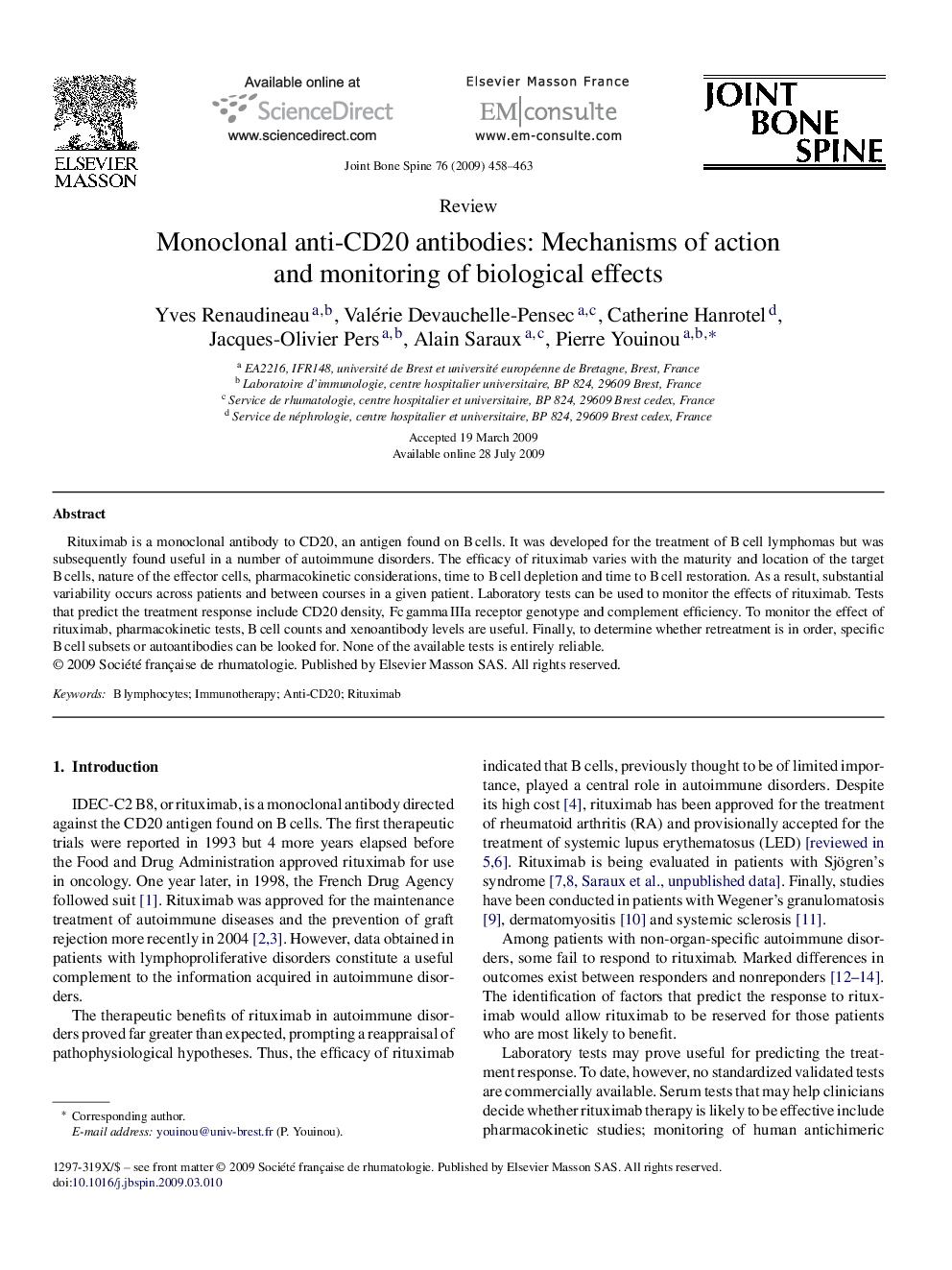| Article ID | Journal | Published Year | Pages | File Type |
|---|---|---|---|---|
| 3366366 | Joint Bone Spine | 2009 | 6 Pages |
Rituximab is a monoclonal antibody to CD20, an antigen found on B cells. It was developed for the treatment of B cell lymphomas but was subsequently found useful in a number of autoimmune disorders. The efficacy of rituximab varies with the maturity and location of the target B cells, nature of the effector cells, pharmacokinetic considerations, time to B cell depletion and time to B cell restoration. As a result, substantial variability occurs across patients and between courses in a given patient. Laboratory tests can be used to monitor the effects of rituximab. Tests that predict the treatment response include CD20 density, Fc gamma IIIa receptor genotype and complement efficiency. To monitor the effect of rituximab, pharmacokinetic tests, B cell counts and xenoantibody levels are useful. Finally, to determine whether retreatment is in order, specific B cell subsets or autoantibodies can be looked for. None of the available tests is entirely reliable.
